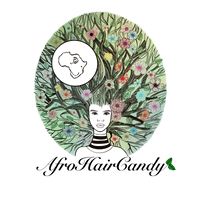What Are Sulphates?
Recently, Sulphate free has become a common label is most shampoos and conditioner, as it’s used to associate the product with a healthier and more organic product.
Sodium Laurel Sulphate is a toxic, harsh surfactant commonly found in household cleaning products and even in toothpaste. It’s a carcinogen and causes extensive damage to your hair and scalp that over time leads to hair loss.
Now that consumers are seeking an alternative, cosmetic companies have diverted a lot of marketing efforts in labelling sulphate-free shampoos, but it begs the question, are these shampoos truly made without any compounds that derive from sulphates?
Chemistry:
To understand it better let me put it like this;
Sulphate is a chemical compound that is composed of sulphur and oxygen atoms. Sulphate forms salts with a variety of elements including potassium, sodium, calcium, magnesium, and barium.
If you change the element of its formula when you add another ingredient to it, you change it’s composition and so the name changes. For example, Sodium Laurel Sulfate becomes Sodium Laurel Sulfonate if the composition is changed by adding a measurement of water, and then a company can claim the product is sulphate free.
These slight variations of using sulphate cousins as it were allows companies to glamorise a healthier aspect of a product that in reality still contains sulphates. It gives the consumer the impression that the product is safer, and of better quality, almost “greenwashing” it, when these surfactants are still sulphate compounds.
Besides this, consumers are also not aware that these companies are choosing to add chemicals to their shampoos that are even stronger, harsher and more dangerous than sulphates such as DEA, Cocamide MEA, PEG, Propylene Glycol, Cocamidroprolyn Betain, Sodium Benzoate, and the list goes on. Therefore after using your sulphate free shampoo your hair still feels dry and your scalp irritations persist. In Essence everything that lathers contain Sulphate.
The good news is there’s hope.
In nature we have several natural cleansers that will benefit your hair and scalp and transform your hair care because your cleansing routine is the foundation to your hair care.
Coconut Oil is a brilliant cleanser with anti-bacterial properties. Most people will find that if they use coconut oil while using shampoo as a cleanser, the oil becomes reactive. This is because the residues of the chemicals in shampoo don’t leave your hair and they then causes a chemical reaction with most oils. Some may experience this in forms of dry scalp and dry hair, but others may even develop small bumps and boils.
Aloe Vera is another potent cleanser and conditioner amongst many others found in nature.
We have made 2 formulars using only Plants, Seeds and Oils, from ancient African recipes for hair cleansing and conditioning.
Using only what nature has provided is the only way to eliminate harmful ingredients in our cosmetics and so with AfroHairCandy🍃 Cowash and Deep Conditioning Treatment, we have unlocked a natural way to cleanse, repair and condition hair, without causing any harm to your hair while feeding and protecting and nourishing your hair and scalp through you cleansing process.
As well as the aloe and coconut oil mentioned above, other core cleansing/conditioning ingredients are fresh Cucumber, garlic, and ginger oils, as well as mint and tea tree.
We use science to balance the ingredients proportions to ensure that they are mild enough even for new-borns but they remain effective to care for scalp, and remove dirt and build up.
The products are absorbed deeply into your hair shaft to feed it with moisture, they give elasticity to allow detangling without breakage and they lift dead skin cells from your scalp to ensure it’s an inviting environment for growth.
Because our ingredients are 100% Organic and Natural, they are suitable for all hair types.
And so, the best way to avoid harmful ingredients is to shop clean by ensuring your products do not contain even one ingredient that does not grow from the ground. If you products are not made from ingredients that are food only, do not trust them.
Written by Carine Mbembi Whyte













Leave a comment